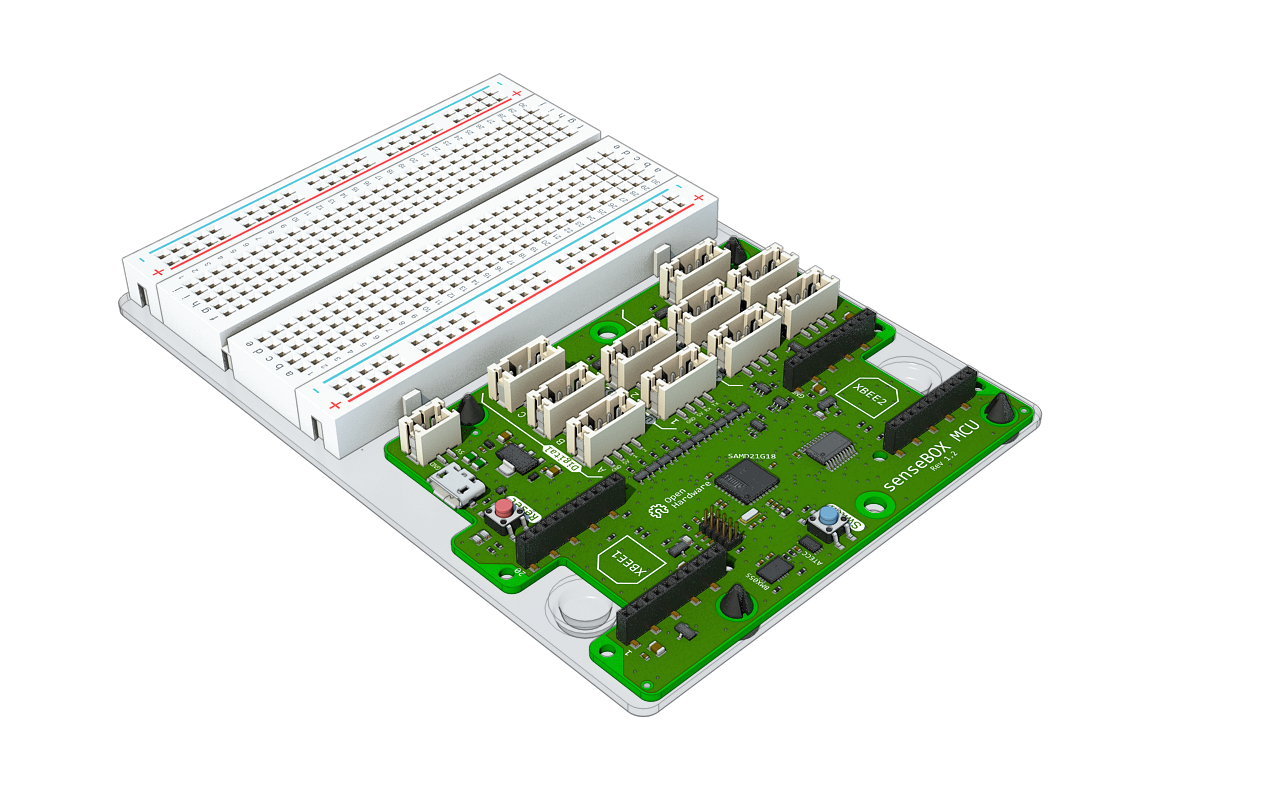The Serial Data Bus
Der I²C-Bus
The I²C bus is an easy to use data bus to transfer data. Here, the data is transferred between the Arduino and the other device through two cables called SDA und SCL.
The SDA (serial data) designated line is the data line over which the actual data is transmitted. The SCL (serial clock) line is also called the clock line and specifies the clock frequency. On the Arduino you will find the two ports as A4 (SDA) and A5 (SDC).
If several I²C devices are to be connected to the Arduino, this is implemented via a series connection. The SDA cable on the first sensor would therefore be extended to the next sensor on the same row of the breadboard:

If you use the I²C bus on the Arduino, the Arduino is always considered a master device and all other devices on the bus as a slave. Each slave has its own address in the form of a hexadecimal number, with which it can be clearly addressed. Usually, each device brings with it a range of bus addresses that can be used. The respective addresses can be found in the data sheet of the manufacturer.